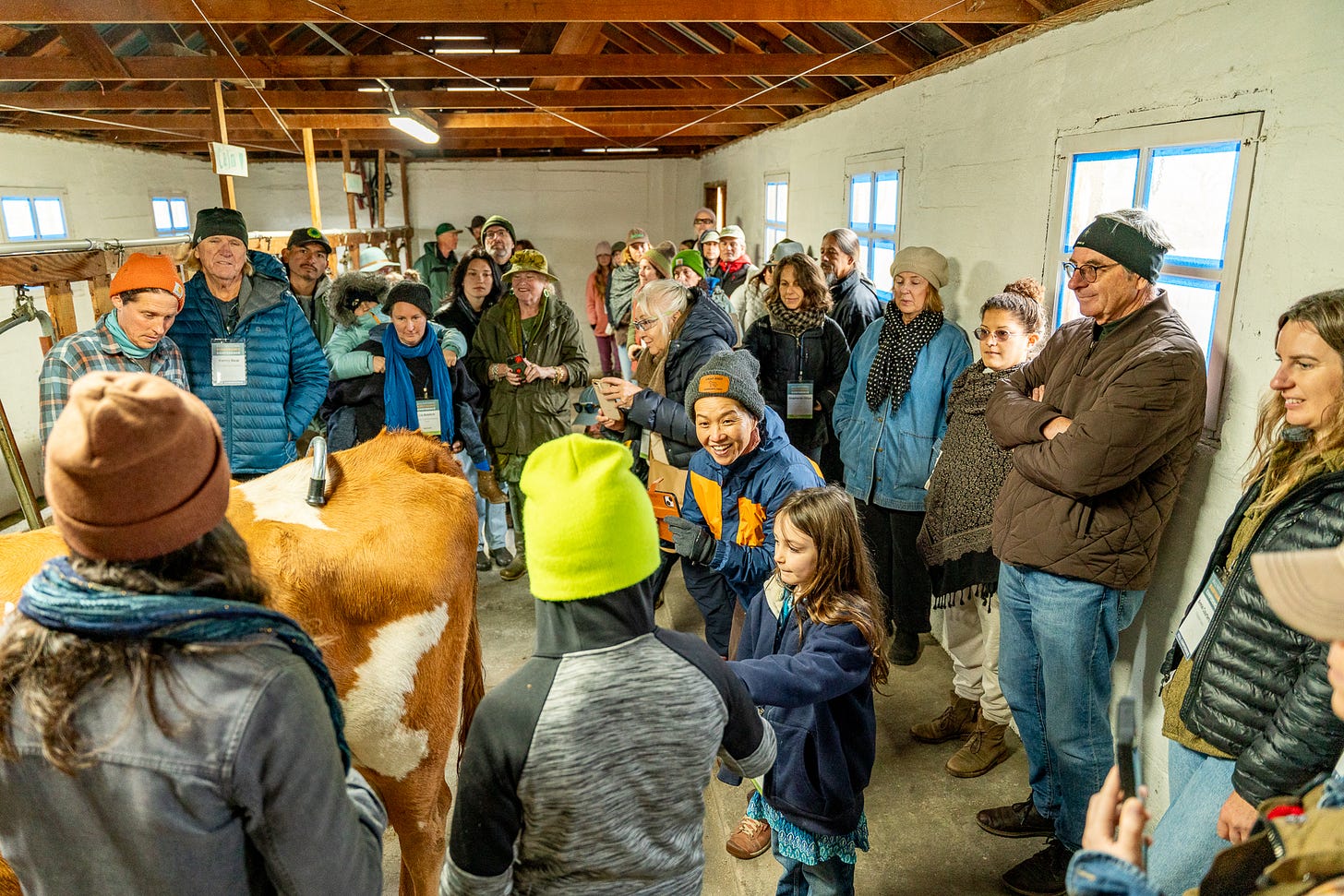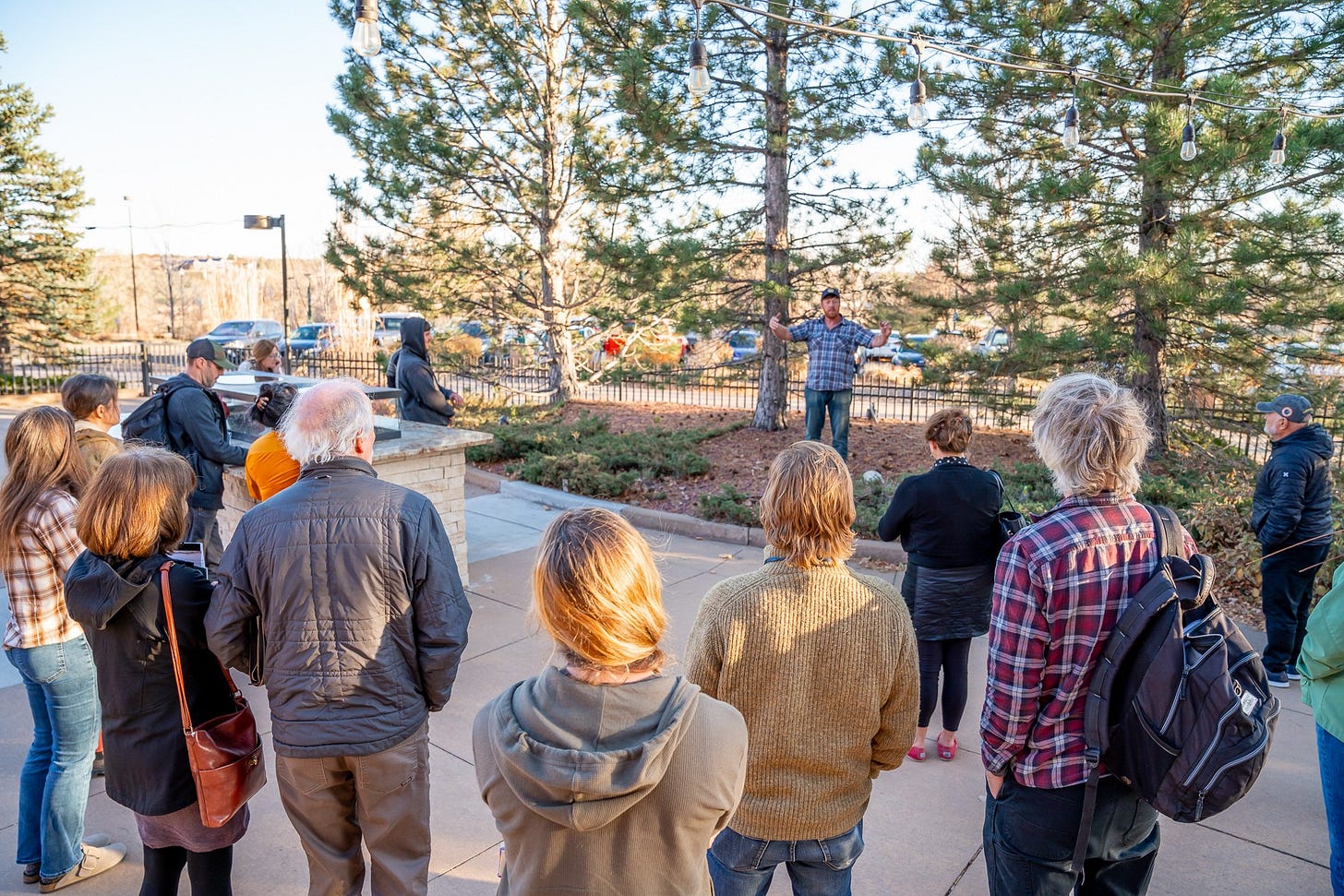I would like to speak for myself as a farmer and an individual by thanking the Biodynamic Demeter Alliance (BDA) for a successful conference. I want to extend my personal appreciation for the enormous efforts that went into creating an event like this. It is never easy, but there has never been a time so inclined against meeting together.
In a time of fragmentation and isolation, there is no greater work than building bridges from heart to heart. We have lived through screens for too long, and the shutdown lethargy has been difficult to shake. But this has changed for us by bringing us together in person, face to face.
The success of the event centers on the enthusiasm of the participants and those who supported the conference planning with their commitment to the ideals of biodynamics. For this, we cannot express enough gratitude. But I would go further. The successes and apparent failings of this conference made it an even greater triumph. Let me explain.
If we had had a completely adequate but unremarkable conference, people would only have been vaguely reminded of their commitment to biodynamic ideals. Even with consensus around certain shortfalls, this is a greater event than if it had been blandly palatable to the biodynamic community.
Why? The disappointments at the conference reignited the fires of our community and reminded us of who we are by showing us who we are not. There is strong feeling in both directions: a praiseworthy fact is that virtually nothing about this conference was lukewarm.
We must accept the criticism from participants for what it really is: a rekindled beacon of hope. Whether feedback appears as hostility or not, we must try to see it as faith resurrected. There is a kind of darkness at the center of every flame: a desire for matter to transform into light, and this is not an easy feeling. This conference has provided fuel for the fire. If it had merely been “love and light” and had gone off without a hitch, its radiant effect would have warmed hearts and then perhaps promptly disappeared. What this event gave us was not just light but fuel.
We are not usually awakened to the love of justice except during times of injustice, and we are mobilized by what goes wrong to pursue with greater fervor what is right. Those who have suffered the gravest injustices can teach us most about the meaning of justice. We learn the significance of something by hungering and thirsting for it. We relearn the value of ecology by witnessing our climates destabilizing. What can be experienced as constructive criticism is really the reawakening of inner fires to the new century of biodynamic work, and the conference has performed this task admirably.
The biodynamic movement is not a centennial fad but a millennial impulse. We must have the constant wrestling between what we are and what we are not. As such, it will remain forever important to juxtapose non-biodynamic sustainable farming alongside the depths of esoteric spiritual scientific research in order to provoke within each soul the imagination necessary to bridge both of these worlds.
Biodynamics as such is a nexus between the spiritual world and all disparate movements. Biodynamics is the unifying idea of repairing the world because it frames us all as spiritual co-laborers for the reparation of the ailing Mother Earth and all her children. Biodynamics is medicine for an ailing society, but medicine is not meant to eliminate the uniqueness of each cultural body but rather to enhance their full individual expression.
We must include techniques in their own right as their own tracks without blurring distinguishing characteristics. As Rudolf Steiner says, Anthroposophy is never fanatical—or it is not Anthroposophy. We must only oppose what is directly inimical to life. As such, anything that is not entirely opposed to openness to life belongs as an ally to our aspirations.
We thank the sky; we thank the earth. We thank Brother Sun and Sister Moon. We thank each of you who attended and those who allowed us to share this space. In particular, we thank those who possess more experiential knowledge of caring for this continent than any abstract system can ever provide. We only bring humble medicine from the far reaches of the cosmos, but we must learn from those who know better than we how to tend this sacred soil.
To another century, and to each of us becoming people who belong together.
Sincerely,
Stewart
Creative Director
The Josephine Porter Institute for Applied Biodynamics







